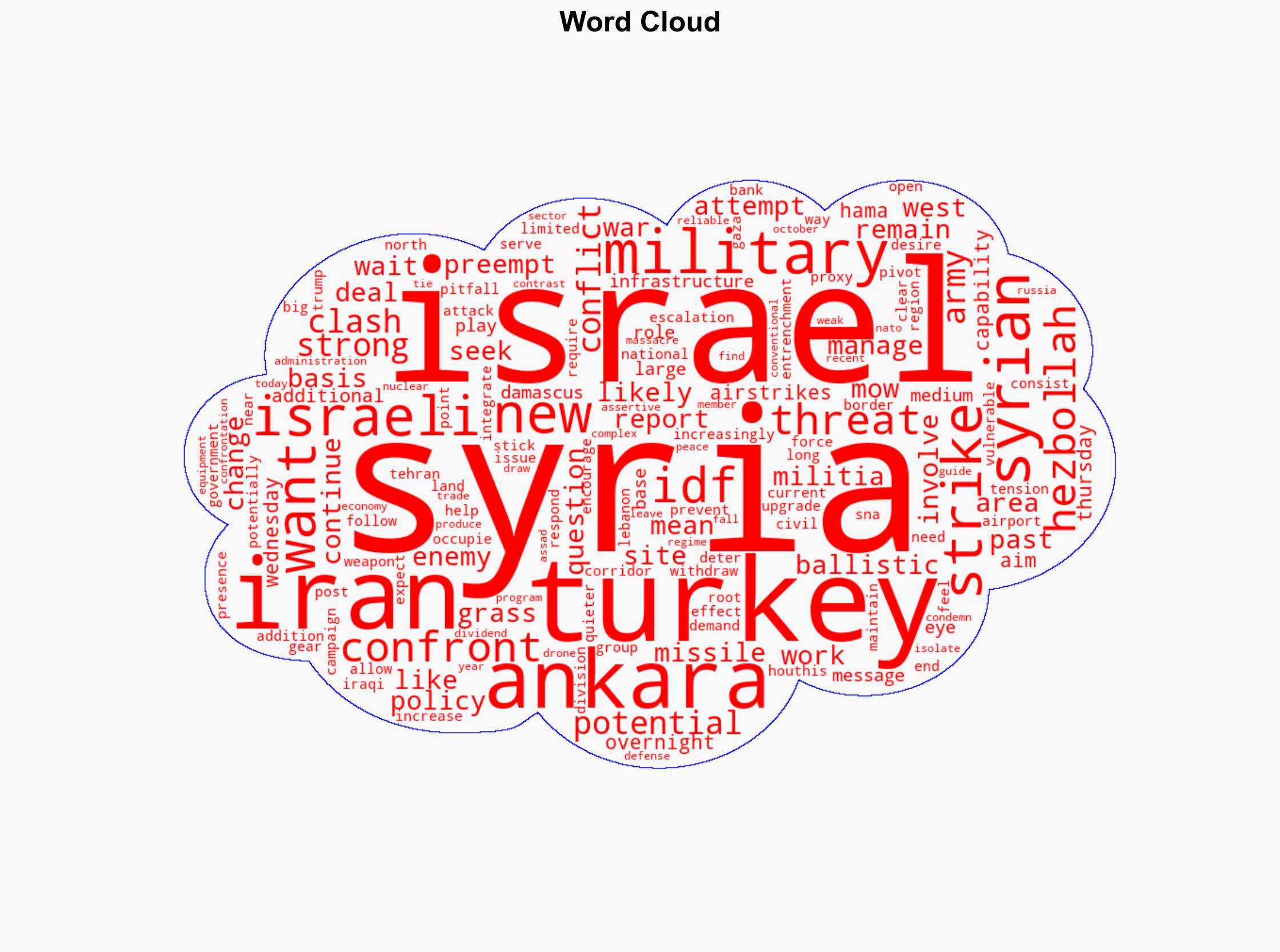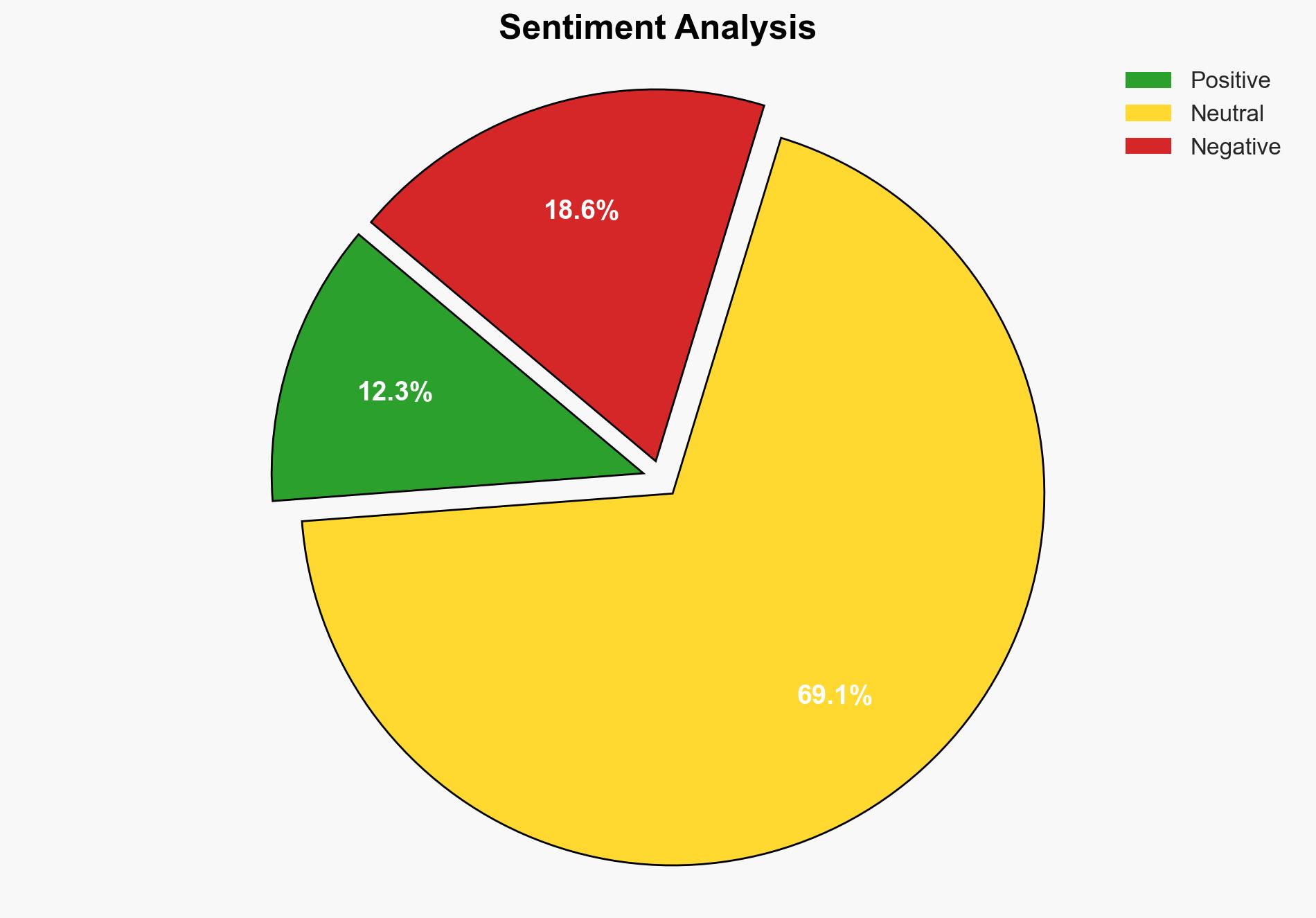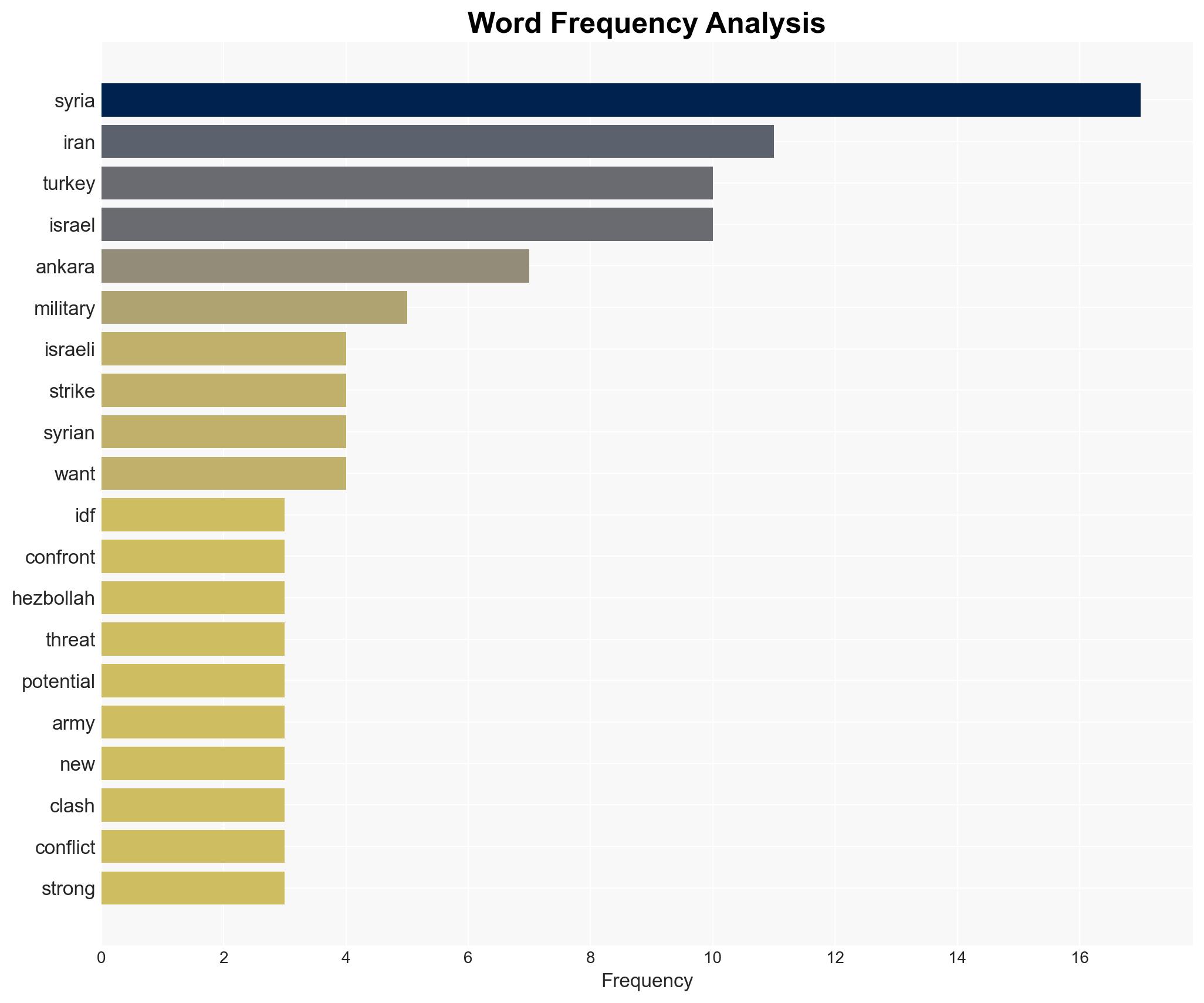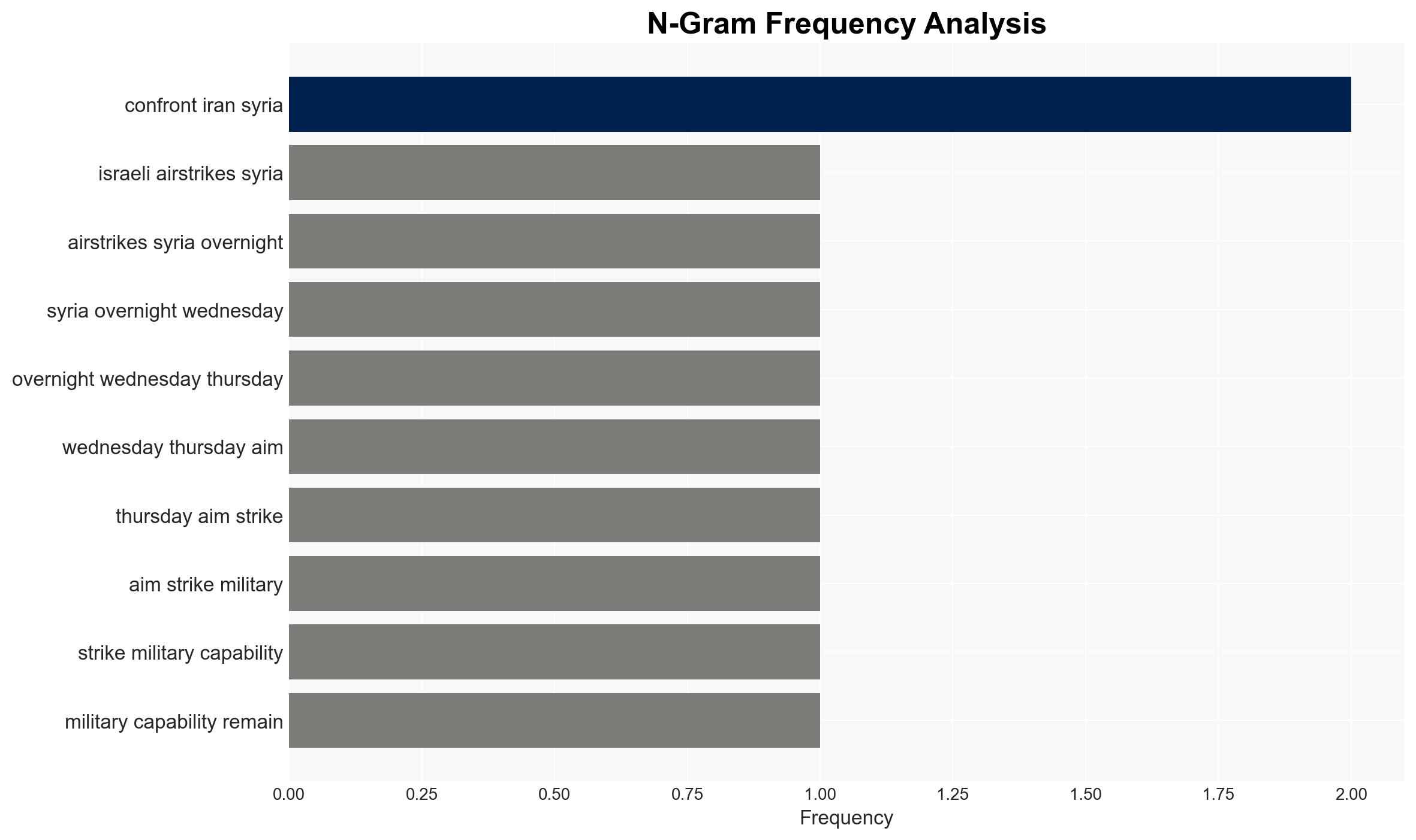Can Israel pivot to confront Turkey while managing other wars – The Jerusalem Post
Published on: 2025-04-03
Intelligence Report: Can Israel pivot to confront Turkey while managing other wars – The Jerusalem Post
1. BLUF (Bottom Line Up Front)
Israel is currently evaluating its strategic position in the Middle East, particularly concerning its military operations in Syria and potential confrontations with Turkey. The ongoing Israeli airstrikes in Syria aim to curb military threats from Iranian forces and their allies. However, Israel’s ability to simultaneously manage tensions with Turkey, a NATO member with significant regional influence, poses a complex challenge. Strategic recommendations focus on maintaining regional stability while addressing emerging threats.
2. Detailed Analysis
The following structured analytic techniques have been applied for this analysis:
General Analysis
Israel’s recent airstrikes in Syria target military capabilities that pose a direct threat. The strikes serve as a deterrent to Iranian entrenchment and are a message to Turkey, which has a growing presence in northern Syria. Turkey’s interests in Syria, including its support for proxy militias, complicate Israel’s strategic calculus. The potential for direct confrontation with Turkey is mitigated by Turkey’s current focus on consolidating its influence in northern Syria. However, any escalation could draw in broader regional actors, increasing the complexity of Israel’s military engagements.
3. Implications and Strategic Risks
The primary risks include potential military escalation with Turkey, which could destabilize the region and strain Israel’s resources. The presence of Iranian forces and allied militias in Syria continues to pose a direct threat to Israeli security. Economic ties between Turkey and other regional powers, including Russia and Western nations, add layers of complexity to any potential conflict. Additionally, the ongoing conflict in Gaza requires significant Israeli military resources, potentially limiting its ability to engage on multiple fronts.
4. Recommendations and Outlook
Recommendations:
- Enhance diplomatic efforts to de-escalate tensions with Turkey while maintaining a strong deterrent posture in Syria.
- Strengthen intelligence-sharing mechanisms with regional allies to monitor and counter Iranian influence in Syria.
- Invest in advanced military technologies to improve operational efficiency and reduce the burden on ground forces.
Outlook:
In the best-case scenario, Israel successfully deters Iranian and Turkish advances in Syria through a combination of military and diplomatic efforts, maintaining regional stability. In the worst-case scenario, simultaneous conflicts with Iran and Turkey could overextend Israeli military capabilities, leading to broader regional instability. The most likely outcome involves continued low-intensity conflicts with strategic strikes to manage threats without escalating into full-scale war.
5. Key Individuals and Entities
The report mentions significant individuals and organizations but does not provide any roles or affiliations. Key figures include Recep Tayyip Erdoğan, Bashar al-Assad, and Benjamin Netanyahu. Entities involved include the Israeli Defense Forces, Iranian military elements, and Turkish-backed militias in Syria.





